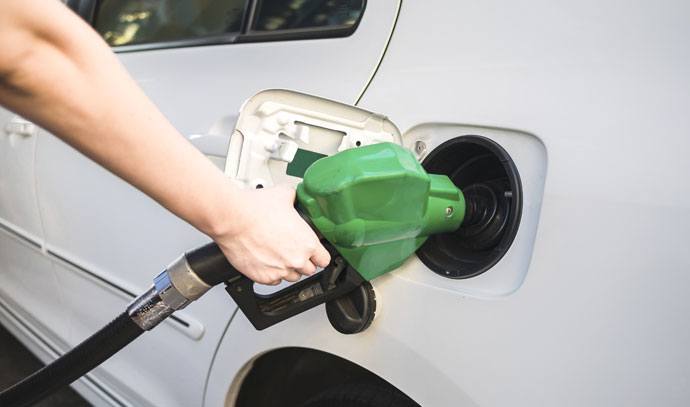A synthetic diesel produced using only water, CO2 and renewable power is being pioneered by car makers Audi.

The first batches of high‑quality diesel fuel were produced earlier this month and used to power an unmodified diesel car. However, the technology is not quite the miracle it at first to be. Although the raw ingredients are water and air, the process is complex and energy intensive.
There continue to be serious questions posed over the environmental performance of diesel – including most biodiesel. And with algae based biodiesel still some way from large scale commercial production, a pilot plant in Dresden has started to produce synthetic e-diesel.
The plant operates according to the power‑to‑liquid (PtL) principle and uses green power to produce a liquid fuel. The only raw materials needed are water and carbon dioxide. The CO2 used is currently supplied by a biogas facility. In addition, initially a portion of the CO2 needed is extracted from the ambient air by means of direct air capturing.
The plant is set to produce over 3,000 litres e‑diesel over the coming months.
Production of e‑diesel involves various steps: First, water heated up to from steam is broken down into hydrogen and oxygen by means of high-temperature electrolysis. This process, involving a temperature in excess of 800 degrees Celsius, is more efficient than conventional techniques because of heat recovery, for example. However, if the e-diesel fuel is to be considered environmentally preferable to conventional fuels, it is vital that this power is from a renewable source. the hydrogen reacts with the
CO2 in synthesis reactors, again under pressure and at high temperature. The reaction product is a liquid made from long‑chain hydrocarbon compounds, known as blue crude.
The efficiency of the overall process is around 70 per cent. Similarly to a fossil crude oil, blue crude can be refined to yield e‑diesel a synthetic fuel free from sulfur and aromatic hydrocarbons. Tests have shown it is suitable for blending with fossil diesel or for use as a fuel in its own right.
ETA breakdown cover
 Established over 24 years ago, and with over 5,000 recovery trucks on call 24/7, we have a proven track record of providing efficient, reliable breakdown cover.
Established over 24 years ago, and with over 5,000 recovery trucks on call 24/7, we have a proven track record of providing efficient, reliable breakdown cover.
We handpick only the best local mechanics and garages around Britain to send out if you break down. We believe this way of working is efficient, environmentally friendly and helps supports local communities and economies, too.
On top of this, we offset the carbon emissions of the recovery trucks that go out to assist you, reducing the impact your breakdown has on our environment. Every breakdown policy you buy helps fund the work of our charity, the ETA Trust, which we set up in 1994 to campaign for a safer, cleaner transport future.
Find out more
0 Comments View now